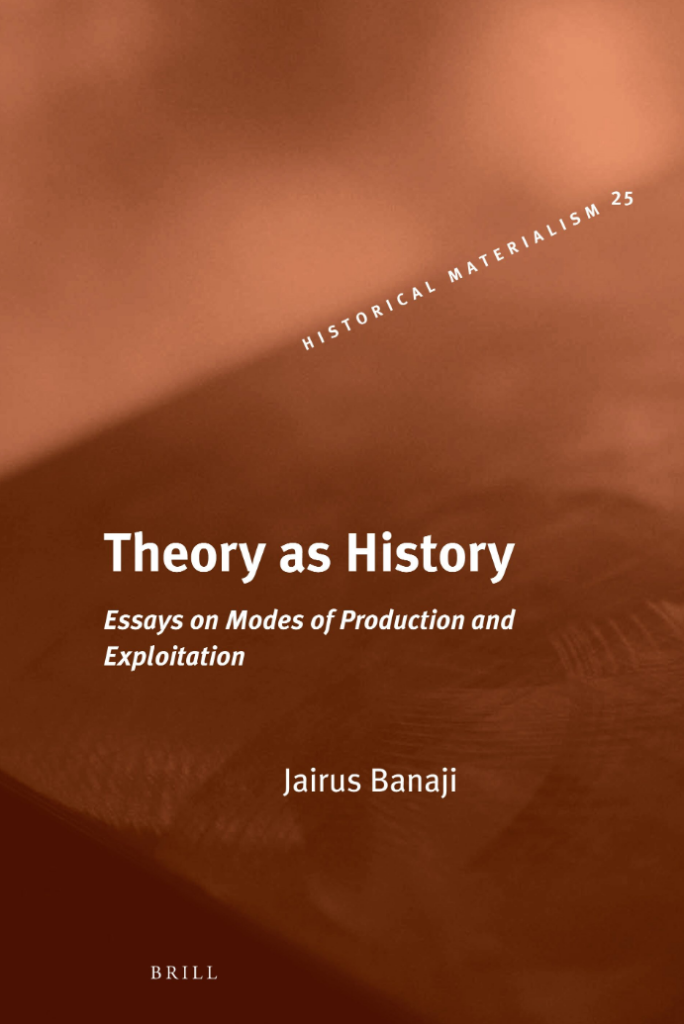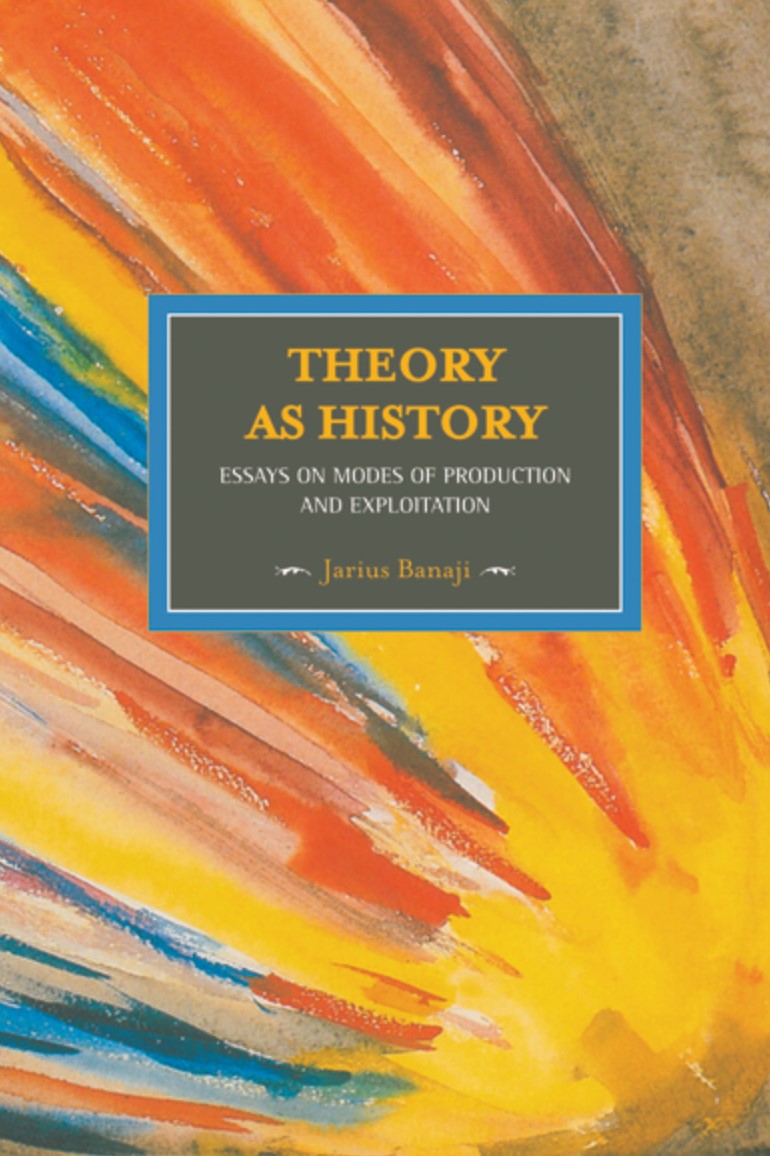Jairus Banaji, SOAS, University of London
The essays collected here straddle four decades of work in both historiography and Marxist theory, combining source-based historical work in a wide range of languages with sophisticated discussion of Marx’s categories. Key themes include the distinctions that are crucial to restoring complexity to the Marxist notion of a ‘mode of production’; the emergence of medieval relations of production; the origins of capitalism; the dichotomy between free and unfree labour; and essays in agrarian history that range widely from Byzantine Egypt to 19th-century colonialism. The essays demonstrate the importance of reintegrating theory with history and of bringing history back into historical materialism. An introductory chapter ties the collection together and shows how historical materialists can develop an alternative to Marx’s ‘Asiatic mode of production’.
Winner of the 2011 Isaac and Tamara Deutscher Memorial Prize.
Biographical note
Jairus Banaji spent most of his academic life at Oxford. He has been a Research Associate in the Department of Development Studies, SOAS, University of London, for the past several years. He is the author of Agrarian Change in Late Antiquity (Oxford, 2007).
Readership
All those interested in historical materialism, Marxist history, agrarian history and the numerous debates around pre-capitalist modes of production, the expansion of capitalism, and the subsumption of labour to capital.
Reviews
“Banaji’s seemingly idiosyncratic but in fact highly sophisticated and original approach to historical analysis provides, I think, not only a welcome stimulus and a challenge for scholars today, but also will give them plenty to think about for many years to come”
Marcel van der Linden
“Banaji’s Theory as History provides an incisive analysis of pre-capitalist modes of production, demonstrating that no aspect of human history is irrelevant to the present. […] It is not the Marxist method that has been at fault, but the dominance of non-Marxist theory and method in the minds of Marxists. One final lesson therefore that Banaji may bring the reader is on the profundity of Marx’s observation that the thoughts of the ruling class are ruling thoughts. Banaji’s analysis is an immensely useful signpost on the road away from the dominance of those thoughts in our own minds.”
Counterfire (www.counterfire.org)
Table of contents
Foreword, Marcel van der Linden
Acknowledgements
1. Introduction: Themes in Historical Materialism
2. Modes of Production in a Materialist Conception of History
3. Historical Arguments for a ‘Logic of Deployment’ in ‘Precapitalist’ Agriculture
4. Workers Before Capitalism
5. The Fictions of Free Labour: Contract, Coercion and so-called Unfree Labour
6. Agrarian History and the Labour-Organisation of Byzantine Large Estates
7. Late Antiquity to the Early Middle Ages: What Kind of Transition? (A Discussion of Chris Wickham’s magnum opus)
8. Aristocracies, Peasantries and the Framing of the Early Middle Ages
9. Islam, the Mediterranean and the Rise of Capitalism
10. Capitalist Domination and the Small Peasantry: The Deccan Districts in the Late Nineteenth Century
11. Trajectories of Accumulation or ‘Transitions’ to Capitalism?
12. Modes of Production: A Synthesis
Publications of Jairus Banaji
References
Index


